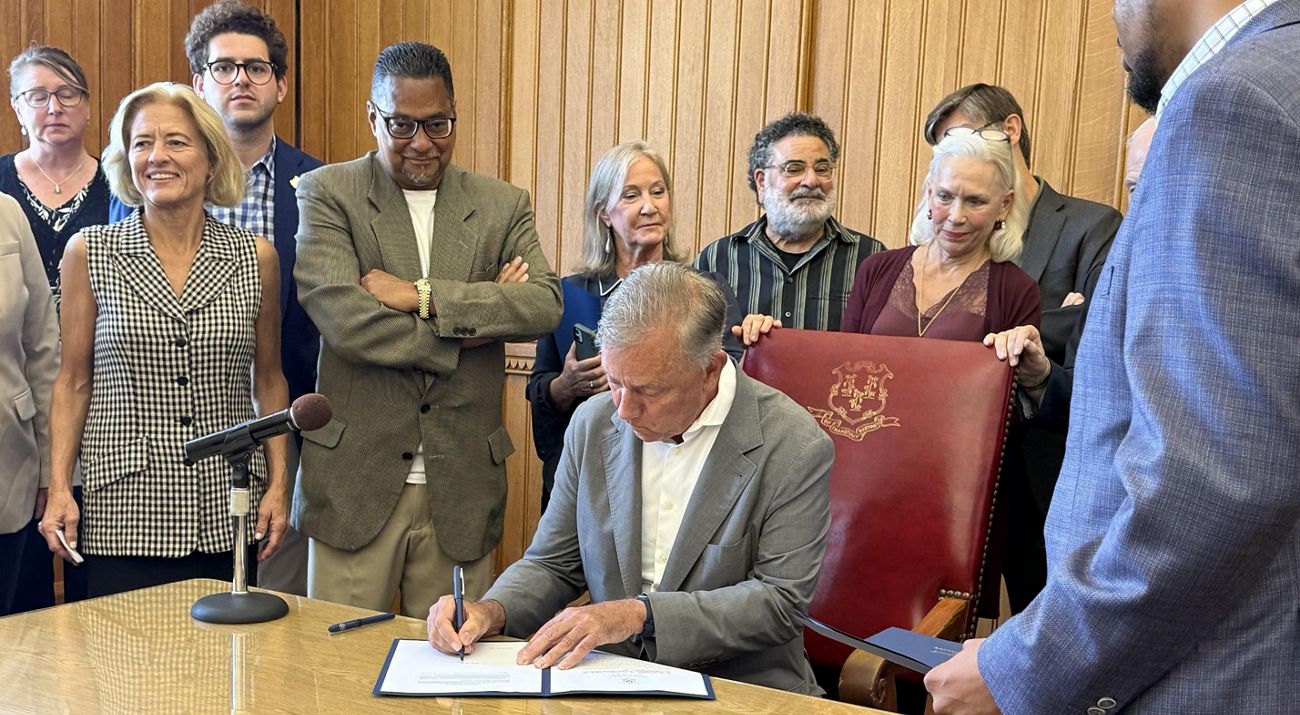Connecticut Climate Bill Signed Into Law
The Nature Conservancy celebrated the passage of an important climate omnibus bill at the Connecticut State Capitol.

Media Contacts
-
Susan Wollschlager
The Nature Conservancy
Phone: 203-209-6218
Email: s.wollschlager@tnc.org
The Nature Conservancy celebrated the passage of an important climate omnibus bill in July at the Connecticut State Capitol with Governor Ned Lamont and fellow advocates.
TNC's Connecticut State Director Frogard Ryan, and Director of External Affairs Nathan Frohling, attended a ceremony where Lamont signed the bill into law. It was a full-circle moment for Frohling—he helped create HB5004 with the Connecticut Coalition for Climate Action, of which TNC is a member.
“There’s increasing evidence for what we face in the future: heat, fires, extreme storm events in New England and other parts of the country. We just know how urgent it is. Every year that goes by gets us to more and more of a dangerous cliff,” Frohling said.
“Part of what we’re excited about with this bill is that we have turned a corner and put climate mitigation back on the table, and simultaneously have made people realize it’s not just about climate alone. The things we need to do for climate are the same things we need to do for our health, for living more affordably, and for many other aspects that will make for a sustainable future.”
The bill includes provisions on:
- Updating key climate goals for Connecticut
- Supporting more renewable energy such as solar canopies
- Providing more opportunities for energy efficiency programs
- Advancing heat pumps, especially for residents, schools and state buildings
It will also ensure protection of the state’s environment while providing for the development of renewable energy sources and related job sectors in a manner that reduces costs connected with such protections and development. TNC advocated for the proposal with testimony, by meeting with legislators, fellow advocates and business leaders for the past couple of years, and by encouraging nature supporters to contact their representatives.
“The omnibus bill addresses many climate issues, not just one aspect of the crisis,” Frohling said. “We’re bringing in many ways of acting on climate that will help us today and long into the future.”
The Nature Conservancy is a global conservation organization dedicated to conserving the lands and waters on which all life depends. Guided by science, we create innovative, on-the-ground solutions to our world’s toughest challenges so that nature and people can thrive together. We are tackling climate change, conserving lands, waters and oceans at an unprecedented scale, providing food and water sustainably and helping make cities more resilient. The Nature Conservancy is working to make a lasting difference around the world in 83 countries and territories (39 by direct conservation impact and 44 through partners) through a collaborative approach that engages local communities, governments, the private sector, and other partners. For more news, visit our newsroom or follow The Nature Conservancy on LinkedIn.
